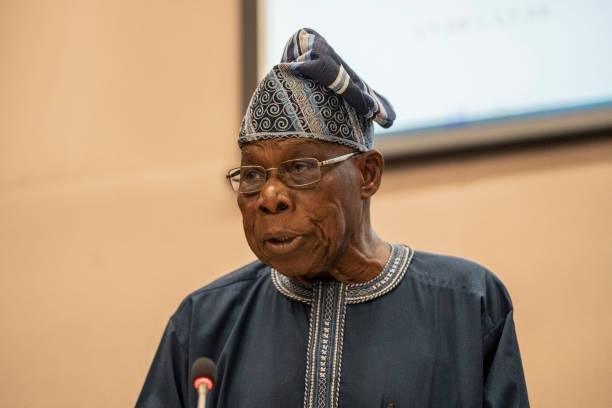Former President Olusegun Obasanjo has decried Nigeria’s persistent failure to provide affordable and quality healthcare for its citizens, warning that millions of Nigerians continue to die from preventable diseases simply because they cannot access a doctor or afford treatment.
Obasanjo spoke in Abuja on Tuesday at the official launch of the CARE 365 Health Hub, an innovation system designed to expand healthcare access through smart kiosks, mobile clinics, telemedicine platforms, and a pool of specialist doctors.
The high-profile event attracted former heads of state, government ministers, healthcare professionals, and private sector stakeholders.
The former president, who chaired the event, lamented that healthcare in Nigeria remains a privilege for the wealthy and urban elites rather than a universal right.
“Healthcare was meant to be a fundamental right, available 365 days a year, to the child in Damaturu, the mother in Yenagoa, the farmer in Ogbomoso, and the teacher in Birnin Kebbi. That was the dream,” Obasanjo said.
“Yet millions still walk miles to reach a health post. Too many die from preventable conditions. In many communities, the nearest doctor is hours away on bad roads.”
Obasanjo described CARE 365 as a potential “tool of social justice” that could revolutionize healthcare delivery in Nigeria if fully embraced. He urged its rollout not only in city centers but also in rural areas, IDP camps, border communities, and riverine settlements.
“It is unacceptable that in an age of artificial intelligence and space tourism, a Nigerian child should die of malaria because her mother could not afford transport to the nearest clinic,” he declared.
Also speaking at the launch, former Head of State, General Abdulsalami Abubakar (rtd), who chairs the CARE 365 board, echoed Obasanjo’s concerns.
He admitted Obasanjo pressured him into accepting the role, joking that the former president simply ordered him to do it.
On a serious note, Abdulsalami said Nigeria’s health infrastructure remains grossly inadequate, stressing that innovations like CARE 365 could help bridge critical gaps.
“Launching is not the end of the problem; it is the beginning. It needs the support of government, the private sector, and every citizen to succeed,” he warned.
Health Minister, Prof. Muhammad Pate, who commissioned the CARE 365 Health Hub on behalf of President Bola Tinubu, said the project aligns with the government’s four-pillar health reform strategy: governance, improved outcomes, unlocking the healthcare value chain, and health security.
“Through kiosks, mobile clinics, and telemedicine, people who might otherwise have no access will now be able to receive care.
“This is an opportunity for our healthcare system to leapfrog into the future,” Pate said, adding that the initiative could also create thousands of jobs in the healthcare sector.
The CARE 365 Health Hub was founded by Ngozi Odumuko, a Nigerian innovator based in the United States.
He said the system was inspired by a desire to replicate the convenience of Western healthcare systems in Nigeria.
Read also:
- EFCC raids Obasanjo’s Presidential Library, detains suspected Internet fraudsters
- From Obasanjo to Obi: The ADC’s long road to relevance
- PSM urges FG to rename FUNAAB after Obasanjo
“I am a Nigerian and a proud one. While in America, this vision was conceived, and through God’s grace, I connected with General Abdulsalami Abubakar, who has been the force behind its actualization,” Odumuko said.
He explained that the CARE 365 ecosystem integrates four key components: the CARE 365 telemedicine app, enabling Nigerians to consult with doctors in Nigeria, the U.S., Europe, and Asia directly from their phones.
The health monitoring kiosks, already installed in Abuja, that offer vital signs checks and direct connections to doctors; mobile clinics, designed to reach rural and underserved areas, and the specialist doctors pool, linking local and international doctors for real-time consultations.
Odumuko stressed that the platform is subscription-based and affordable, targeting not only urban dwellers but also roadside traders and rural families.
“This is about making healthcare available 365 days a year, for every Nigerian, whether they live in Lagos, a riverine village in Bayelsa, or an IDP camp in Borno,” he said.






